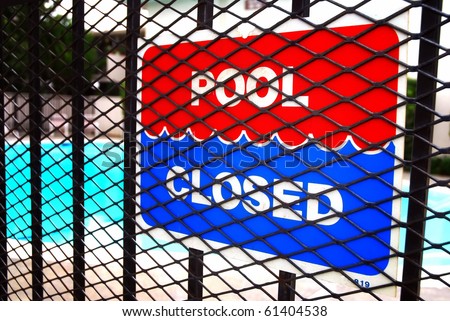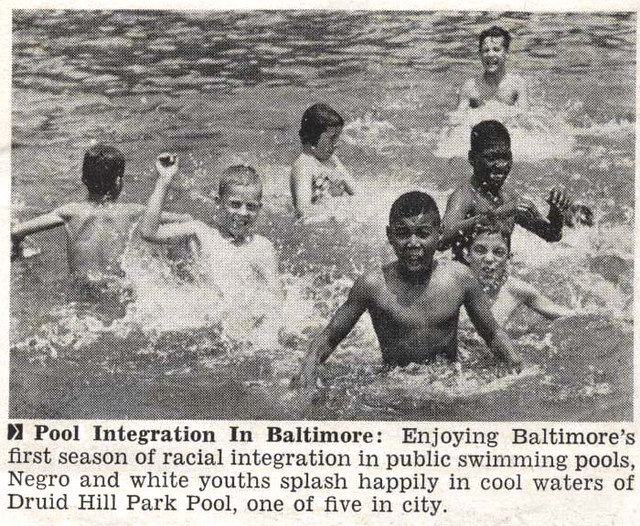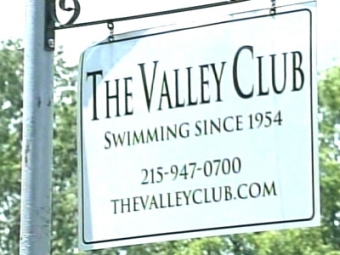
On 29 June, 65 children from the Creative Steps summer camp in Philadelphia took a trip to the private suburban Valley Club swimming pool for a dip. The Valley Club knew they were coming and how many there were because the camp had signed a contract and paid $1,950 in advance for weekly visits throughout the summer. But somehow the arrival of the mostly African-American and Latino children was still a shock. As the black and brown kids got into the pool, the white parents pulled their kids out.

One child overheard a woman ask: "What are those black kids doing here?" Another reportedly expressed fears that the children might steal something. A few days later the club revoked the contract and refunded the advance. When asked why, the club's president, John Duesler, said: "There is a lot of concern that a lot of kids would change the complexion … the atmosphere of the club."
The story broke on the national stage just in time for the centennial conference of the oldest US civil rights organisation, the National Association for the Advancement of Colored People. While some asked whether the NAACP was still relevant, others gathered outside the Valley Club with placards.

There is a perverse comfort many get from displays of blatant racial injustice. A simple morality play starring villains and victims always draws a bigger, more indignant crowd than the more involved narrative of structural inequality. With all laws and most voices in support of systematic racial exclusion gone, such incidents allow everyone to express their outrage – safe in the knowledge that nothing much need change in terms of systemic discrimination.
"It may sound odd to say, but in some ways rigid segregation was an ally," says the NAACP chairman, Julian Bond, "because things were so clear. There were signs, there were places where you knew you could not go if you were a person of colour. And having lost that clarity it's sometimes difficult to focus on who's the enemy, what's the ill here."
And so it has been in Philadelphia that a faceless enemy and a litany of institutional ills has long been paving the way for the clarity surrounding the situation at Valley Club.

The Valley Club was founded in 1954, the year the supreme court ruled on Brown v Board of Education making racial segregation illegal. This was no coincidence. That decade had seen a rash of efforts to integrate pools, which had sparked white flight. "When pools were desegregated, white people abandoned them en masse," explains Jeff Wiltse, associate history professor at the University of Montana and author of Contested Waters: A Social History of Swimming Pools in America. "There was a boom in the construction of private pools where middle-class whites could still exclude non-whites … I don't know the details of the founding of the Valley Club, but both the time and the place in which it was built fits right into that story."
Meanwhile, the public facilities that remained catered for the poor and the non-white, and were rapidly downgraded. This year Philadelphia has closed more than a third of its pools owing to budget cuts. So the kids from Creative Steps did not make that trip by chance. Politics and economics brought them there – and then intolerance kept them out when they arrived.

When they got home, they had other problems to deal with. The stampede to the suburbs (Philadelphia has lost a quarter of its population since 1950) has left an impoverished "minority-majority", where one in five families lives in poverty. Unemployment, already in double figures, has risen by almost 50% in the last year.
According to the coalition to save libraries (the mayor had planned to close more than a fifth of those), this was already set to be a bleak summer in the "City of Brotherly Love". Further budget cuts mean there are 1,700 fewer positions for summer camps and 3,700 fewer summer programme slots for children, and 772 fewer recreational jobs and 400 fewer summer internships for young people this year. "These cuts are devastating for youth in our communities," says Sherrie Cohen, an organiser with the coalition. "With less structured opportunities in our neighbourhoods, kids are left to get into trouble."

These cuts are not specifically aimed at minorities. But they disproportionately affect the poor, and since minorities are disproportionately represented among the poor, they hit black and Latino families hardest. Herein lies the intersection between race and class – without an understanding of which little sense can be made, and no effective challenge mounted, against modern racism.
Given the large numbers of white people who are poor and the large numbers of black people who are not, it is not helpful to frame racial disadvantage purely in terms of isolated, dramatic events that humiliate black people. Poor white people in Philadelphia have little stake in whether black kids can swim in Valley Club or not, but they have a big interest in keeping pools open, which would benefit far more black kids than does admission to one suburban pool. In those connections lie the potential for class solidarity between races

It is this context that makes elements of Barack Obama's speech to the NAACP conference problematic. Having paid homage to the heroic role of the civil rights movement and recognized the inequalities bequeathed by segregation, he started on parenting. "We've got to say to our children, if you're African- American, the odds of growing up amid crime and gangs are higher," he said. "If you live in a poor neighborhood, you will face challenges that somebody in a wealthy suburb does not have to face. But that's not a reason to get bad grades; that's not a reason to cut class; that's not a reason to give up on your education and drop out of school. No one has written your destiny for you. Your destiny is in your hands – you cannot forget that. That's what we have to teach all of our children. No excuses. No excuses."
The audience lapped it up. Such admonitions are commonplace at any aspirant black American dinner table, where parents tell children they will have to work twice as hard as their white counterparts to get just as far. These are the mantras with which I was raised, and may well one day repeat. But I would not like to see them elevated to national policy. Nor was Obama speaking at a dinner table, but at an event that produce headlines like: "School the new cool. O to parents: It's not just about rap," in the New York Post; and "Obama tells fellow blacks: 'No excuses' for failure," in the New York Times.

A leader who has spent billions bailing out banks, bombing Afghanistan and occupying Iraq while poverty and unemployment rise should be wary of lecturing others on priorities. He, of all people, should understand that we can only play with the hand we're dealt.
It goes without saying that even those in the toughest circumstances have choices. But as the situation in Philadelphia illustrates, and as Obama pointed out elsewhere in his speech, those circumstances are becoming tougher and those choices fewer for black American families, who have been hit far harder by this recession than others.

If I'm looking for someone I don't know to give me advice on raising my kid, there's always Supernanny. What I want from a president are the resources that will enable any child to enjoy their summer where they please without having the doors closed on them by budget cuts or bigotry. No excuses. No excuses. (source: UK Guardian)

This comment has been removed by a blog administrator.
ReplyDeleteThis comment has been removed by a blog administrator.
ReplyDeleteThis comment has been removed by a blog administrator.
ReplyDelete